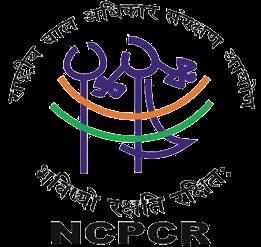The Hindu Editorial Analysis- 25th October 2024 | Current Affairs & Hindu Analysis: Daily, Weekly & Monthly - UPSC PDF Download

Move on madrasas, the alienation of Muslims
Why in News?
As the Supreme Court of India has stayed the recommendations of the National Commission for Protection of Child Rights (NCPCR) to stop government funding to madrasas (which are not compliant with the Right to Education (RTE) Act, 2009 and to conduct an inspection of all madrasas) as well as subsequent actions taken by the Centre and various States, there is mild relief for the minorities and secular-minded people of the country. But the apprehension triggered by the move remains.
National Commission for Protection of Child Rights (NCPCR)
- The National Commission for Protection of Child Rights (NCPCR) is a legal body set up under the Commissions for Protection of Child Rights Act, 2005.
- Its main job is to protect and promote the rights of children in India.
- The NCPCR makes sure that laws and policies meant to help children are put into action.
- It also fights for children’s rights, looks into complaints about violations, and suggests ways to keep children safe and healthy.
The NCPCR focuses on creating a safe environment for children by addressing issues like:
- Child Labor
- Trafficking
- Education
- Health
- Juvenile Justice
Its ultimate aim is to ensure the overall development and dignity of every child in the country.
About National Commission for Protection of Child Rights (NCPCR)
- The National Commission for Protection of Child Rights (NCPCR) is a statutory body established under the Commissions for Protection of Child Rights (CPCR) Act, 2005. Its primary purpose is to ensure the protection, promotion, and fulfillment of child rights in India.
- The NCPCR serves as a dedicated institution responsible for monitoring and safeguarding the rights of children across the country.
History of National Commission for Protection of Child Rights (NCPCR)
- The need for a specialized body to address child rights issues was recognized with the enactment of the Commissions for Protection of Child Rights Act in 2005. This legislation aimed to establish national and state commissions to protect and promote child rights.
- The NCPCR was formally established on March 5, 2007, under the chairmanship of Dr. Shantha Sinha, a renowned child rights activist and recipient of the Ramon Magsaysay Award.
Objectives of the National Commission for Protection of Child Rights (NCPCR)
The main goal of the NCPCR is to safeguard, promote, and ensure the rights of all children across India.
- Monitoring Implementation: The commission oversees the execution of child rights laws, policies, and programs at both national and state levels, making sure that children's rights are put into action effectively.
- Addressing Complaints: NCPCR listens to and acts on complaints about violations of child rights, taking necessary steps to provide remedies.
- Advocacy and Awareness: The commission engages in advocacy efforts to raise awareness about child rights, educate stakeholders, and enhance the capacity of various duty-bearers, including government officials, civil society organizations, and communities.
Functions of National Commission for Protection of Child Rights (NCPCR)
The NCPCR is responsible for overseeing the implementation of laws, policies, and programs related to child rights and evaluating their effectiveness. They gather data, conduct research, and produce reports on the status of child rights in the country. The commission has the authority to investigate complaints and cases of child rights violations, carry out inquiries, and recommend appropriate actions to the relevant authorities.
Policy Advocacy and Awareness
- The NCPCR actively engages in advocating for policy and legislative changes to influence the development and amendment of laws and programs affecting child rights.
- They provide recommendations and inputs to the government on various child rights issues.
- The commission organizes campaigns, workshops, seminars, and other activities to raise awareness about child rights, educate stakeholders, and promote a child-friendly environment.
Powers of National Commission for Protection of Child Rights (NCPCR)
- Powers of a Civil Court: The NCPCR has the authority of a civil court when investigating matters. This includes summoning witnesses, examining them under oath, and compelling the production of documents.
- Inspection of Juvenile Institutions: The commission can inspect juvenile custodial institutions, review records, and recommend improvements.
- Recommendations and Directions: The NCPCR can issue recommendations and directions to central and state governments, departments, and other stakeholders regarding child rights issues. While these recommendations are not legally binding, they are taken seriously.
Initiatives Taken by NCPCR
- Childline Services: The NCPCR works with Childline India Foundation to provide a 24/7 helpline for children in need of care and protection, offering emergency assistance, support, and rehabilitation to distressed children.
- Bal Swaraj: The Bal Swaraj program empowers children by giving them a platform to express their views, participate in decision-making, and advocate for their rights.
- Child-friendly Schools: The commission promotes child-friendly school environments by ensuring the implementation of the Right to Education Act and addressing issues related to school safety, quality education, and child-friendly infrastructure.
Challenges and Limitations of the NCPCR
Non-Binding Recommendations
- The recommendations and directions issued by the NCPCR are not legally binding on the government or other stakeholders. This lack of enforceability limits the commission's ability to effectively uphold child rights.
- The NCPCR relies on cooperation and voluntary compliance from the concerned authorities, which can be a significant challenge in ensuring child rights protection.
Resource Constraints
- The NCPCR faces challenges related to inadequate funding and staffing, which can hinder its capacity to address child rights violations comprehensively.
- Insufficient resources may limit the commission's ability to conduct thorough investigations, research, and awareness campaigns, impacting its overall effectiveness.
Coordination with State Governments
- Although the NCPCR is a national body, the implementation of child rights heavily depends on the actions of state governments and local authorities.
- Ensuring effective coordination with state-level child protection agencies and addressing variations in implementation across different states poses significant challenges for the commission.
Reaching Marginalized Communities
- The NCPCR faces difficulties in reaching marginalized and vulnerable communities, particularly in remote areas where access to information and services may be limited.
- Limited public awareness about the role and functions of the NCPCR can also impede its effectiveness in protecting child rights.
Overlapping Jurisdictions
- The presence of multiple institutions and agencies responsible for child rights protection, such as the National Human Rights Commission and State Commissions for Protection of Child Rights, can lead to overlapping jurisdictions.
- This overlap may result in coordination issues and inefficiencies in the overall child rights protection framework.
About the State Commission for Protection of Child Rights
The State Commission for Protection of Child Rights (SCPCR) is a statutory body set up under the Commissions for Protection of Child Rights (CPCR) Act, 2005, at the state level in India. Each state has its own SCPCR, which is responsible for protecting and promoting child rights within its jurisdiction. The SCPCRs work in coordination with the National Commission for Protection of Child Rights (NCPCR) to ensure the effective implementation of child rights laws and policies at the state level.
Composition and Functions of SCPCR
- The composition and functions of the SCPCR are similar to those of the NCPCR.
- The SCPCR is headed by a Chairperson, with members and a Member-Secretary appointed by the state government.
- SCPCRs monitor the implementation of child rights, inquire into complaints, conduct investigations, and make recommendations to the state government for necessary actions.
- They coordinate with various stakeholders, including government departments, NGOs, and civil society organizations, to address child rights issues in the state.
Key Takeaways for UPSC Aspirants
- NCPCR is a statutory body set up under the Commissions for Protection of Child Rights (CPCR) Act, 2005, to protect and promote child rights in India.
- It operates under the Ministry of Women and Child Development, ensuring its actions align with government policies.
- The NCPCR ensures that all laws and policies are in line with child rights as per the Indian Constitution and the UN Convention on the Rights of the Child.
- It promotes research on child rights and advocates for the welfare of children.
- The commission investigates complaints of child rights violations, conducts inquiries, and can summon individuals for attendance and document production.
Key Focus Areas
- Child abuse(physical, sexual, emotional)
- Child exploitation(labor, trafficking)
- Education rights
- Health rights
- Issues faced by vulnerable groups like street children and children in conflict with the law
The NCPCR collaborates with state governments, NGOs, and civil society organizations to foster a child-centric environment. By focusing on these areas and working with various stakeholders, the NCPCR aims to create a safer and more supportive environment for all children in India.
|
38 videos|5258 docs|1111 tests
|





















